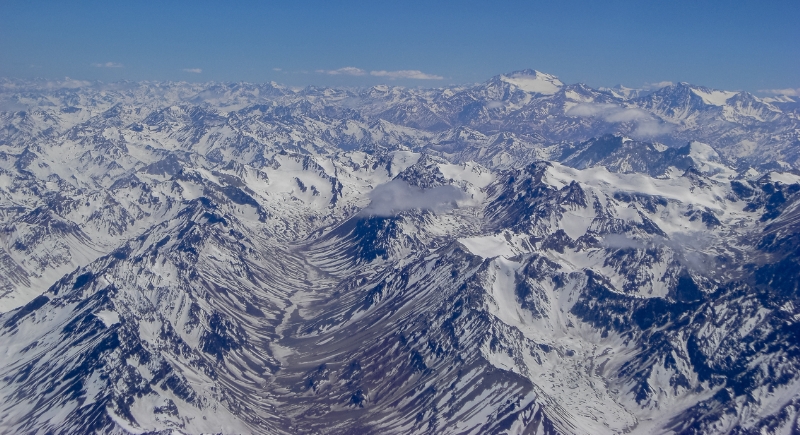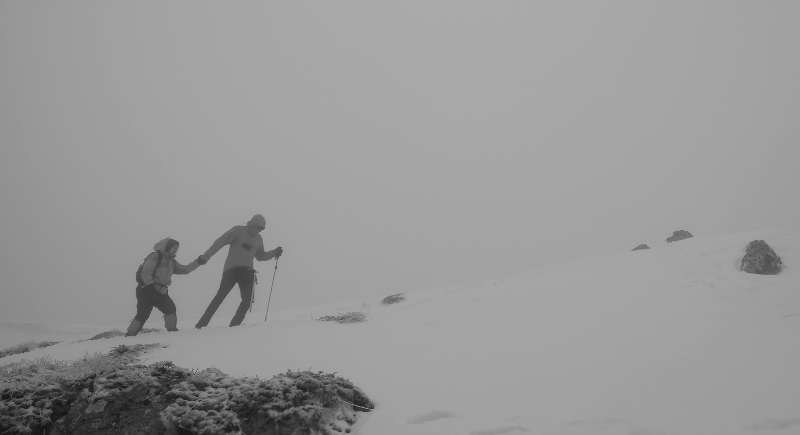The Harrowing Survival Story of the Rugby Team That Crashed in the Mountains
In October 1972, a chartered flight carrying members of Uruguay’s Old Christians Club rugby team crashed in the Andes while en route to Chile. Of the 45 passengers—players, relatives, and friends—twelve were killed on impact, and others followed in the freezing aftermath. Trapped at nearly 11,500 feet with little food or shelter, the survivors faced extreme cold, isolation, and the growing realization that rescue might never come. The routine trip soon became a 72-day struggle against starvation and despair.
The Mountains Took Everything But Their Will

Image via Wikimedia Commons/Diego Delso
The survivors started by tending to their injured teammates using what little they had. Two of them had medical training, including Roberto Canessa, a medical student. He tried to treat wounds with torn clothing and scavenged supplies. The group huddled inside the fuselage at night, using the thin metal shell as their only protection from temperatures that dropped below zero. They rationed scraps of chocolate, a few crackers, and sips of wine, believing rescuers were coming any day.
But by the tenth day, a tiny transistor radio delivered crushing news that the search had been called off. The world had given them up for dead. The sense of abandonment was devastating, but it also changed everything. The survivors stopped waiting and started planning. They melted snow for water using strips of aluminum from the wreckage and began talking about how to stay alive long-term. It was in those conversations that a difficult, unthinkable decision was made. With no food left, they would have to use the frozen bodies of their friends who had died in the crash as nourishment.
It was a grim, shared decision that tore at their emotions but kept them alive. Canessa later described it as an act of survival driven by love and the desire to return home so their families wouldn’t have to mourn them. With guilt and gratitude, and through that pain, they found a reason to keep fighting.
Avalanche, Despair, and a New Determination
If the crash hadn’t been enough, nature tested them again. Seventeen days in, two avalanches slammed into the fuselage, burying it in snow and killing eight more people. The rest clawed for air and waited three days trapped in darkness. They had to comfort one another. Humor, as strange as it sounds, became a survival tool.
When they finally dug their way out, only nineteen were left. Weeks passed. Starvation and frostbite picked off three more. The snow began to melt, and with it came the possibility of escape. That hope was enough for three men, Nando Parrado, Canessa, and Antonio “Tintin” Vizintín, to prepare for a final chance at freedom. They layered every piece of clothing they could find, stitched together an improvised sleeping bag from insulation, and said goodbye to their friends, promising to return with help.
The Trek For Survival

Image via Pexels/Eva Hamitaj
The climb was brutal. The men had no maps, no mountaineering experience, and almost no food. Each night, they shared the sleeping bag to fight off the cold. Vizintín turned back partway through to save rations for the others. Parrado and Canessa pressed on, scaling icy peaks and walking for ten exhausting days through snow and stone until they saw something they hadn’t seen in months: signs of life. Cattle. Fences. A river. And then, a man on horseback.
They shouted across the river, too weak to cross. The man, a Chilean herdsman named Sergio Catalán, couldn’t hear them over the rushing water, but he returned the next day. Parrado wrote a note, wrapped it around a rock, and threw it to him. It read: “I come from a plane that crashed in the mountains. I have 14 friends at the crash site. We need help.” Catalán rode for ten hours to alert authorities. In the following days, helicopters battled harsh winds to reach the wreckage. On December 22 and 23, 1972, the sixteen survivors of Flight 571 were finally rescued.
Decades Later, Still Teaching the Power of Teamwork
More than fifty years later, Parrado and Canessa still share their story. In 2024, Parrado spoke to the Ireland national rugby team during training camp, reminding players that the sport’s values of trust, unity, and sacrifice were the same ones that saved his life. Irish full-back Hugo Keenan said the team was “blown away.” Their coach called Parrado’s talk “a powerful dose of reality.”
Today, both men live successful lives. Canessa became a pediatric cardiologist. Parrado, once a broken young man, found peace in helping others see that even in despair, courage can grow. Their friendship remains a testament to their bond.
The Andes kept them prisoner for 72 days, but what emerged became proof of what humans can do when everything else is gone but hope. And in the end, that hope was enough.